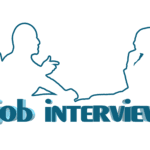
There are tons of negative effects in the workplace when it is uncivil. An article in the Small Business Chronicle, titled, “The Important of Civility in the Workplace,” outlines several negative effects of uncivil behavior. Some of the effects include reduced work productivity, and job commitment issues including reduced task follow-through, dread, burnout, absenteeism, and staff turnover.
Incivility vs. Harassment
These are just some of the issues when you work in an uncivil workplace. There is a difference between being firm on an issue and being uncivil. Uncivil behavior includes any rudeness which causes a person to feel uncomfortable or unhappy. It is any sort of micro-aggression. Examples can be consistently rehashing old issues, making jokes at other’s expense, demanding immediate action, positioning oneself over others, displaying a lack of regard for others, addressing others in an unprofessional, disrespectful way like “talking down” to others, and by using degrading remarks or tone of voice. It can also be when people ignore others (in-person, by emails, etc.) and pay little attention to others’ opinions. There is a fine line between incivility and harassment.
Inappropriate vs Illegal
When one employee targets animosity onto another because of a protected factor, the behavior crosses the line from inappropriate to illegal. Remember that uncivil behavior can also cause serious employment relations issues. There is the social phenomenon called “The Bystander Effect,” in which a person is less likely to offer help to another person when there are more people around who can also help. We need to be conscious of this and help others whenever we can.
Be observant so we do not miss the opportunity to help. We feel better about ourselves when we can contribute to better social behavior and when others see it, they are more willing to be kind and helpful, too. We all must keep an open mind, allow ourselves to be exposed to another’s viewpoint, and make a genuine effort to find what is beneficial about it.









